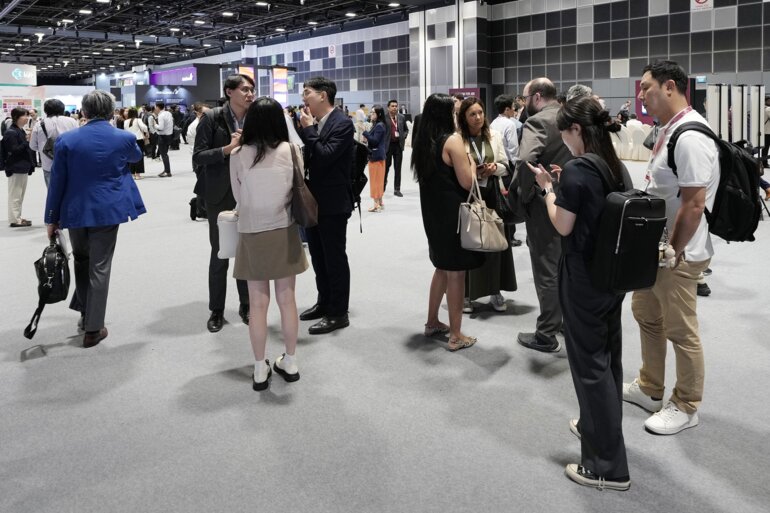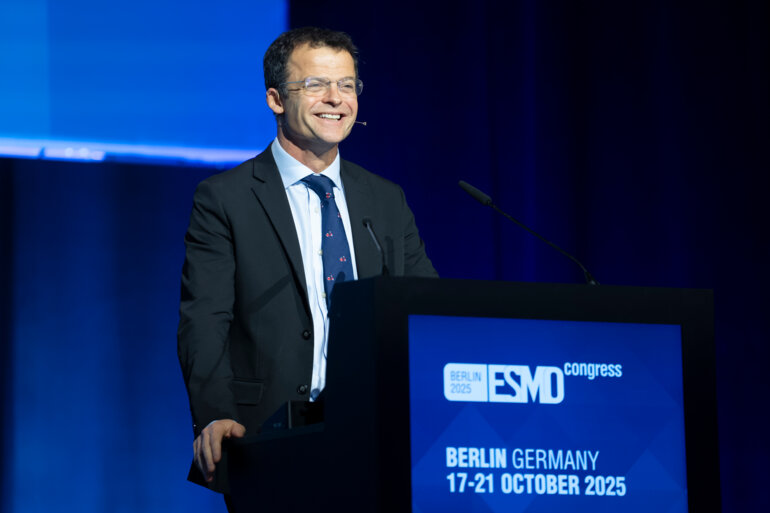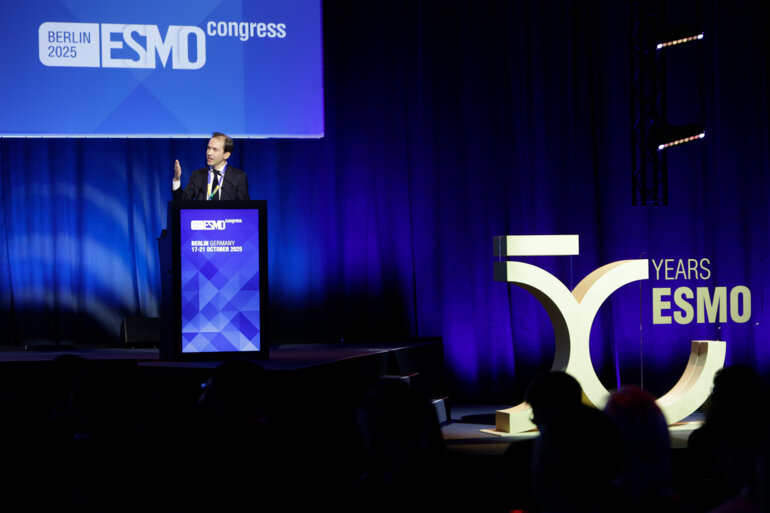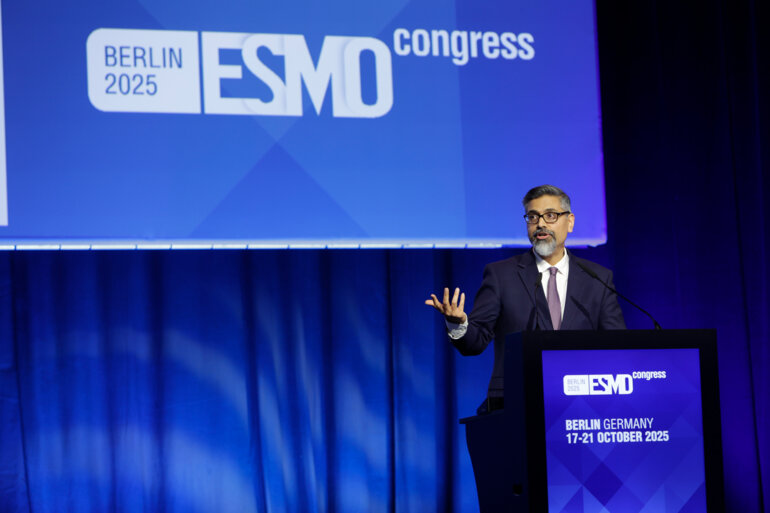Study results support alternative treatment regimens in prostate and urothelial tumours, showing similar efficacy to standard care while reducing treatment burden
Molecularly targeted treatments have revolutionised the management and treatment outcomes of many different tumour types, yet conventional cytotoxic chemotherapy remains an integral part of treatment for most cancer types. Standard doses and predefined cycle numbers of conventional cytotoxic chemotherapy, as assessed in clinical trials, are sometimes challenging to replicate in the real-world setting due to a real-world patient population that may differ from well-selected trial patient populations.
In this scenario, treatment optimisation has emerged as a promising strategy to deliver less burdensome therapies while enhancing their feasibility, compliance and cost-effectiveness. This approach benefits patient-reported outcomes and holds promise to allow more equitable access across heterogeneous patient groups.
Convincing evidence was presented at the ESMO Congress 2025 (Berlin, 17–21 October) from two studies in genitourinary cancers, which investigated alternative regimens with the aim of improving patient-centred endpoints as primary outcomes.
The phase III trial ARASAFE assessed an alternative docetaxel regimen of 50 mg/m2 once every two weeks versus the standard 75 mg/m2 once every three weeks as part of upfront triplet treatment in combination with standard androgen deprivation therapy (ADT) plus the androgen receptor pathway inhibitor (ARPI), darolutamide, for patients with hormone-sensitive metastatic prostate cancer (LBA92).
The combination of darolutamide or placebo plus docetaxel and ADT was previously assessed in the pivotal ARASENS phase III study, showing an improvement in survival outcomes with the triplet over docetaxel plus ADT alone, with no overlapping toxicities from combining docetaxel and the ARPI (N Engl J Med. 2022;386:1132–1142). However, the docetaxel-related haematotoxicity and risk of neutropenic complications remained a significant clinical risk, with 1 in 3 patients suffering grade 3–4 neutropenia. Another phase III trial, the PROSTY study, had shown similar efficacy with significantly reduced haematotoxicity with the 2-weekly application of 50 mg/m2 docetaxel compared with the defined standard of three-weekly 75 mg/m2 in patients with metastatic castration-resistant prostate cancer (Lancet Oncol. 2013;14:117–124).
Results from the phase III ARASAFE trial now show a similar picture as these landmark studies, with lower incidence of higher-grade adverse events and grade 3–5 haematotoxicity, which may broaden access to triplet combinations to a larger patient population benefitting from upfront treatment intensification.
Also presented in Berlin, the phase II DISCUS trial assessed 3 versus 6 cycles of platinum-based chemotherapy plus gemcitabine followed by avelumab maintenance as first-line treatment for locally advanced or metastatic urothelial cancer (LBA109).
The addition of avelumab maintenance plus best supportive care following at least disease stabilisation after 4–6 courses of platinum-based chemotherapy in patients with metastatic urothelial cancer had previously shown a clinically relevant improvement in overall and progression-free survival over post-chemotherapy best supportive care in the JAVELIN Bladder 100 trial (N Engl J Med. 2020;383:1218–1230). Results led to avelumab maintenance therapy being the first change to the first-line treatment standard in this setting after many years. However, despite the high activity of platinum-based chemotherapy as first-line treatment for metastatic urothelial cancer, a relevant subset of patients may not tolerate or complete 4–6 courses of platinum-based combination chemotherapy due to toxicity and may thus not be eligible for avelumab maintenance.
Results from the DISCUS trial now highlight the feasibility of commencing avelumab maintenance after only 3 cycles of platinum-based chemotherapy plus gemcitabine. Importantly, 74.4% of patients completed the 3 pre-planned chemotherapy cycles compared with only 36.6% allocated to receive 6 cycles, thus resulting in a higher proportion of patients commencing avelumab (72.2% versus 51.5%). The shorter duration of chemotherapy did not negatively impact the treatment response rate or survival outcomes, but was associated with significantly improved patient-reported quality of life and a lower rate of grade 3–4 adverse events. This may give the opportunity to offer avelumab to a larger number of patients to benefit from earlier immune checkpoint inhibitor treatment.
These findings are clinically relevant, as platinum-based chemotherapy followed by avelumab maintenance is still first-line standard for patients with metastatic urothelial carcinoma in many countries, where the more recently established new standards – enfortumab vedotin plus pembrolizumab or upfront triplet of cisplatin–gemcitabine–nivolumab – are not approved or available yet.
The results from ARASAFE and DISCUS nicely highlight that optimisation of first-line treatment is feasible in prostate and urothelial cancers without diminishing treatment success, but with a significant improvement in treatment safety and patient-centred outcomes.
Programme details:
Grimm MO, et al. 3-weekly docetaxel 75 mg/m2 vs 2-weekly docetaxel 50 mg/m2 in combination with darolutamide + ADT in patients with mHSPC: Results from the randomised phase III ARASAFE trial. ESMO Congress 2025 - LBA92
Grande E, et al. DISCUS: A phase II study comparing 3 vs 6 cycles of platinum-based chemotherapy prior to maintenance avelumab in advanced urothelial cancer. ESMO Congress 2025 - LBA 109







